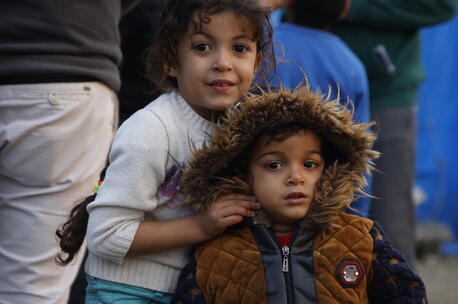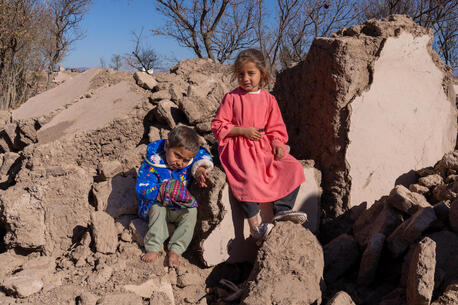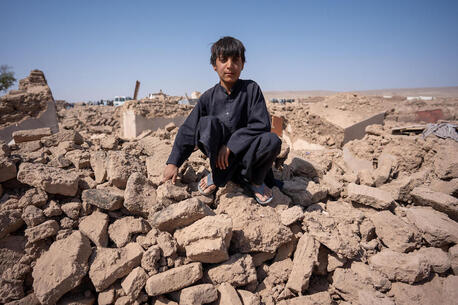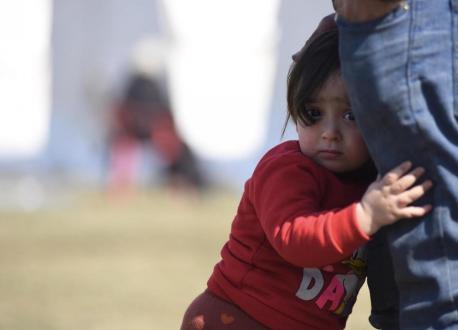
Children in Crisis After Earthquakes in Turkey and Syria Need Help Now
UNICEF and partners are providing emergency aid to children and families in Turkey and Syria after several powerful earthquakes.
Two weeks after deadly back-to-back earthquakes hit Turkey and Syria, yet another powerful quake struck Turkey's southern province of Hatay on Feb. 20, threatening more devastation for children and families already in crisis.
Nearly 47,000 have been reported dead since the twin quakes hit on Feb. 6. As the death toll and number of injured continue to rise, UNICEF fears many thousands of children have been killed. Hundreds of thousands of children need urgent humanitarian assistance.
The Feb. 20 magnitude 6.4 earthquake hit a region of Turkey already reeling from earlier twin quakes
In Turkey, 4.6 million children were living in the 10 provinces hit by the Feb. 6 quakes. In Syria, 2.5 million children are affected. UNICEF is on the ground in both countries, working with partners to reach children and families with emergency supplies and services.
"Children and families are in desperate need of additional support," UNICEF Spokesperson James Elder said in a Feb. 14 briefing at the Palais des Nations in Geneva.
"Many of our local partner organizations' staff and first responders have been killed, injured, displaced and their offices and equipment destroyed. Everyone, everywhere needs more support. More safe water. More warmth. More shelter. More medicines. More funding."
Everyone, everywhere needs more support. — UNICEF Spokesperson James Elder
Families with children are sleeping in the streets, malls, schools, mosques, bus stations and under bridges. They are staying with their children in open areas, afraid to return home to buildings that may be structurally unsound and vulnerable to the potential impact of likely aftershocks.
Tens of thousands of families are exposed to the elements at a time of year when temperatures are bitingly cold, and snow and freezing rain are common. Reports rise daily of the number of children suffering from hypothermia and respiratory infections.
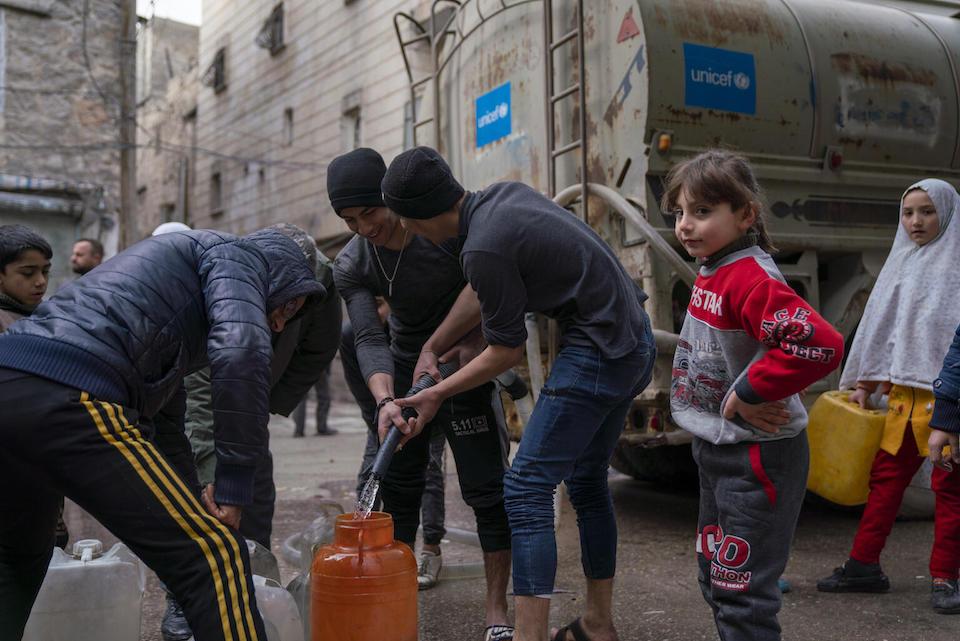
In Syria, UNICEF’s immediate lifesaving response includes providing safe drinking water, warm winter clothes, medical care and nutritional supplies. In Turkey, UNICEF is dispatching winter clothes for children; family, baby and mother hygiene kits; family travel hygiene kits and blankets. UNICEF is also procuring sleeping bags, power banks and sleeping chairs across the 10 affected provinces.
Child protection remains a top priority.
"Given the catastrophic and ever increasing death toll, it is clear that many, many children will have lost parents in these devastating earthquakes," Elder said.
"In Turkey, UNICEF, in coordination with the Ministry of Family and Social Services, has deployed social workers to the hospitals to help identify unaccompanied and separated children and make sure their basic needs are met. In addition, together with the Ministry of Family and Social Services, UNICEF has launched 10 new hotlines in the affected provinces for unaccompanied and separated children."
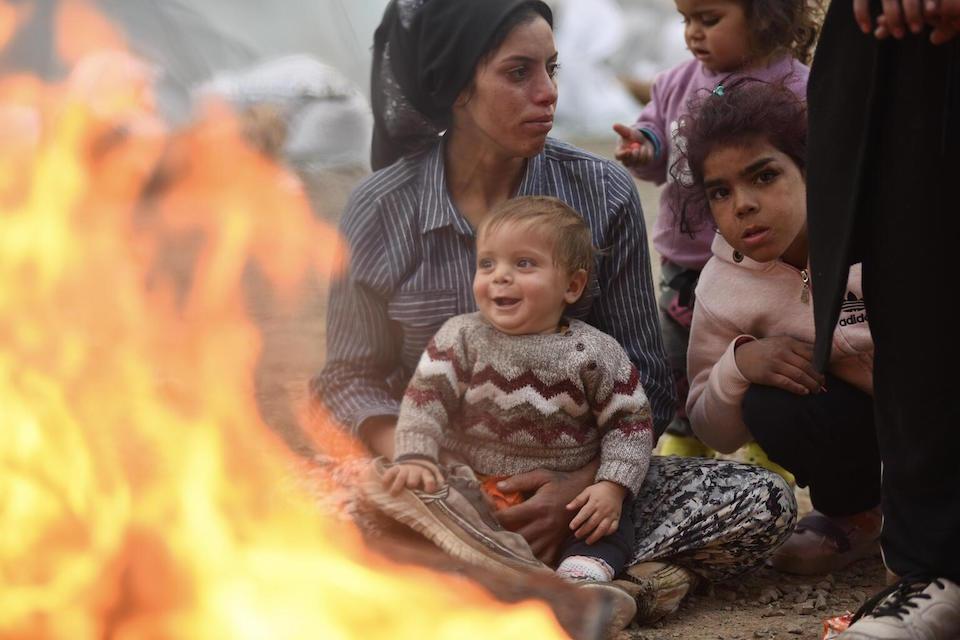
UNICEF is also working with partners to provide children with critical psychosocial and mental health support. For many of these children — particularly in war-affected Syria – this is trauma on top of trauma.
To quickly expand the reach of psychosocial support for children, UNICEF has trained close to 70 instructors who can in turn train others to deliver psychological first aid, while mobilizing longer-term mental health and psychosocial support.
UNICEF is also distributing hundreds of recreational kits that will provide tens of thousands of children with items to help them cope with the impact of the earthquake through play, learning and reestablishing a sense of normalcy.
UNICEF puts children first in times of crisis: your contribution can make a difference
In Syria, the compound trauma is a generational phenomenon, Elder noted.
"Every child under the age of almost 12 has known nothing but conflict, violence or displacement," he said. "Some children have been displaced six or seven times. More than 1.7 million registered refugees from Syria live in the 10 affected provinces in Turkey, and an estimated 811,000 of them are children. Years of violence, destruction and deteriorating economic conditions have made living conditions unbearable. This would appear [to be] the international community’s last chance to show solidarity to these millions of children.”
Please help UNICEF reach more children in Turkey and Syria with the emergency assistance they need. Your contribution can make a difference. Donate today.
